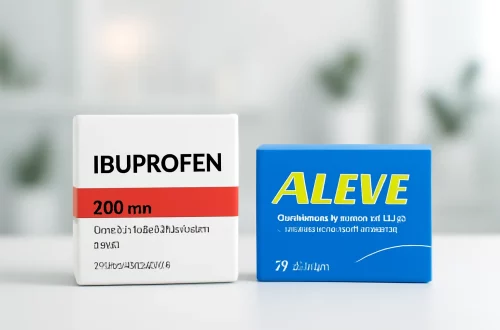
Why Does My Dog’s Breath Smell Like Poop and What to Do About It
Dogs are known for their loyalty, playfulness, and companionship, but they can also bring some unexpected challenges into our lives. One of the more unpleasant surprises dog owners may encounter is foul-smelling breath, particularly when it resembles feces. While it’s easy to dismiss this as a minor issue, it can often be a sign of underlying health problems that require attention.
The reasons behind your dog’s bad breath can range from simple dietary choices to more serious health concerns like dental disease or gastrointestinal issues. Understanding the causes of this phenomenon is essential for maintaining your dog’s overall health and well-being. Not only can poor oral hygiene lead to discomfort for your pet, but it can also result in expensive veterinary bills if left untreated.
As a responsible dog owner, it’s important to stay informed about your pet’s health and recognize when something is amiss. This knowledge will empower you to take the necessary steps to address any issues, ensuring your furry friend remains happy and healthy. In this article, we will explore the various reasons behind your dog’s bad breath and provide you with practical solutions to help improve their oral hygiene and overall health.
Common Causes of Bad Breath in Dogs
Understanding why your dog’s breath smells like poop requires a closer look at the common causes of bad breath in dogs. One of the primary culprits is poor dental hygiene. Just like humans, dogs need regular dental care to prevent plaque buildup, which can lead to tartar formation and periodontal disease. When bacteria accumulate in the mouth, they produce foul-smelling gases that can contribute to bad breath.
Another common issue is diet. If your dog is consuming low-quality food or has a penchant for scavenging, they may ingest substances that cause their breath to smell unpleasant. Additionally, certain human foods, particularly those high in fat or sugar, can also lead to digestive issues, resulting in bad breath. It’s essential to monitor your dog’s diet and ensure they are eating high-quality, appropriate food for their age and size.
Gastrointestinal problems may also be a factor. Conditions such as gastroesophageal reflux disease (GERD) or other digestive disorders can cause food and stomach acids to flow back into the esophagus, leading to halitosis. If your dog’s breath smells particularly foul, it may be worth consulting your veterinarian to rule out any underlying gastrointestinal issues.
Furthermore, medical conditions such as diabetes, liver disease, or kidney problems can contribute to bad breath. For instance, diabetic dogs may develop a sweet, fruity odor due to the presence of ketones in their system, while dogs with liver or kidney issues may have breath that smells like urine or feces. Recognizing these symptoms early can lead to timely intervention and treatment.
Lastly, oral tumors or infections can also be a source of bad breath. Tumors can develop in the mouth or throat, causing not only odor but also pain and difficulty eating. Regular veterinary check-ups and dental cleanings are crucial for detecting such issues early on.
How to Improve Your Dog’s Oral Hygiene
Improving your dog’s oral hygiene is a proactive way to tackle the issue of bad breath. One of the most effective methods is regular tooth brushing. Just as with humans, brushing your dog’s teeth can help reduce plaque and tartar buildup. Use a toothbrush designed specifically for dogs and a toothpaste formulated for pets, as human toothpaste can be harmful to dogs.
Aim to brush your dog’s teeth at least two to three times a week, if not daily. Start slowly, allowing your dog to get used to the process. You can begin by letting them taste the toothpaste and gradually introduce the toothbrush. Be gentle and patient, as this may take some time for your dog to accept.
In addition to brushing, consider incorporating dental treats and chews into your dog’s routine. These products are designed to help clean teeth and freshen breath while providing a tasty reward. Look for options that are approved by veterinary dental associations to ensure their effectiveness.
Regular veterinary dental cleanings are also essential for maintaining your dog’s oral health. Your veterinarian can perform a thorough cleaning that removes tartar and checks for any underlying dental issues. Depending on your dog’s breed and age, they may require professional cleanings more frequently.
Another helpful tip is to provide your dog with dental toys. Chewing on these toys can help scrape away plaque and keep their teeth strong. Choose toys that are durable and specifically designed for dental health.
Finally, monitor your dog’s diet, as high-quality food can make a significant difference in oral health. Look for dog food that contains ingredients specifically aimed at promoting dental health. Consult your veterinarian for recommendations tailored to your dog’s needs.
When to Consult a Veterinarian
Recognizing when to consult a veterinarian is crucial for your dog’s health. If your dog’s breath has suddenly changed or if it continues to have an unpleasant odor despite your efforts to improve oral hygiene, it’s time to seek professional help.
Persistent bad breath can indicate serious health issues that require immediate attention. For instance, if your dog’s breath smells like feces or has a strong, unusual odor, it could point to gastrointestinal problems. Your veterinarian can perform diagnostic tests to determine if there are underlying conditions affecting your dog’s digestive system.
Additionally, if you notice other symptoms accompanying the bad breath, such as vomiting, diarrhea, changes in appetite, or lethargy, do not hesitate to consult your veterinarian. These signs could indicate a more severe issue that needs prompt intervention.
Oral health problems such as gum disease or tooth decay can also lead to persistent bad breath. If your dog appears to be in pain while eating or if you can see visible tartar buildup, a veterinary visit is warranted. Early intervention can prevent further complications and ensure your dog remains comfortable.
Lastly, if your dog is experiencing difficulty eating or has a noticeable change in their eating habits, this could be a sign of dental issues or other health problems. It’s essential to address these changes as soon as possible to ensure your dog’s well-being.
Preventive Measures for Maintaining Fresh Breath
Preventive measures play a critical role in maintaining your dog’s fresh breath. One of the simplest yet most effective ways is to establish a regular dental care routine. As mentioned earlier, brushing your dog’s teeth should be a priority. Consistency is key, and establishing a routine will help your dog get used to the process.
Incorporate dental-friendly treats and toys into your dog’s daily routine. These can help control plaque buildup and keep their teeth clean. Look for products that are designed to promote oral health, as these will be more effective than standard treats.
Regular vet check-ups should also be a part of your preventive measures. Your veterinarian can help monitor your dog’s dental health and catch any issues early on. They can also provide professional cleanings and advice tailored to your dog’s specific needs.
Ensure your dog is on a balanced diet that supports oral health. High-quality dog food can make a significant difference in reducing bad breath. Additionally, consider adding fresh vegetables to their diet, as some can help clean teeth naturally.
Hydration is equally important; ensure your dog has access to fresh water at all times. This not only supports overall health but also helps wash away food particles and bacteria in the mouth.
In conclusion, understanding the reasons behind your dog’s bad breath and taking proactive steps can significantly improve their health and quality of life. By maintaining good oral hygiene, consulting your veterinarian when necessary, and implementing preventive measures, you can help ensure your furry friend enjoys fresher breath and better overall health.
**Disclaimer: This article is not a substitute for professional veterinary advice. If you suspect your dog has a health problem, always consult a veterinarian for proper diagnosis and treatment.**




